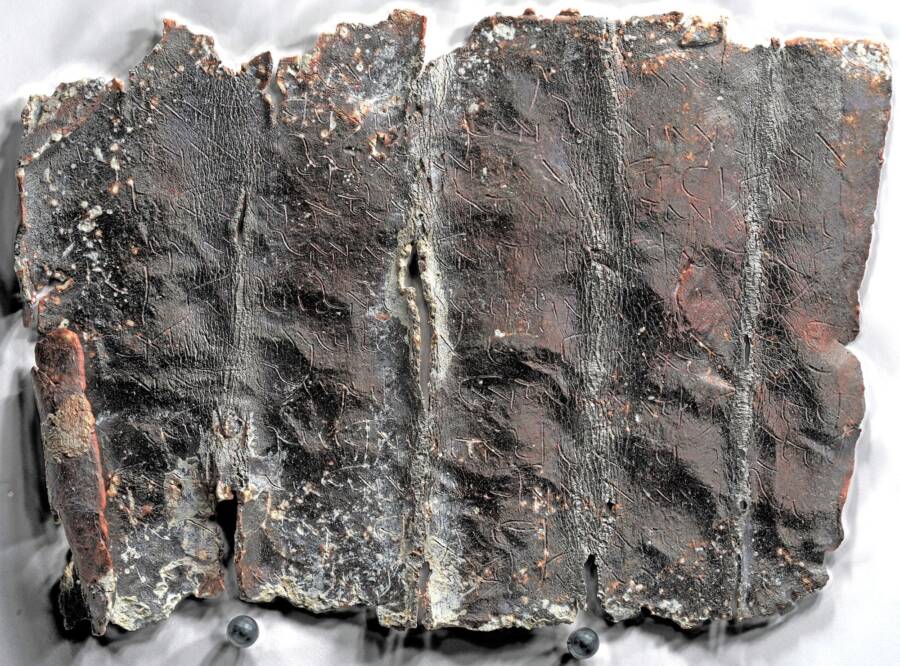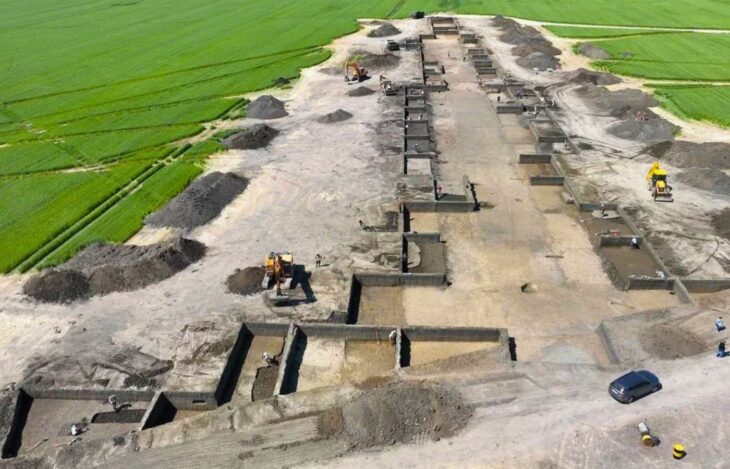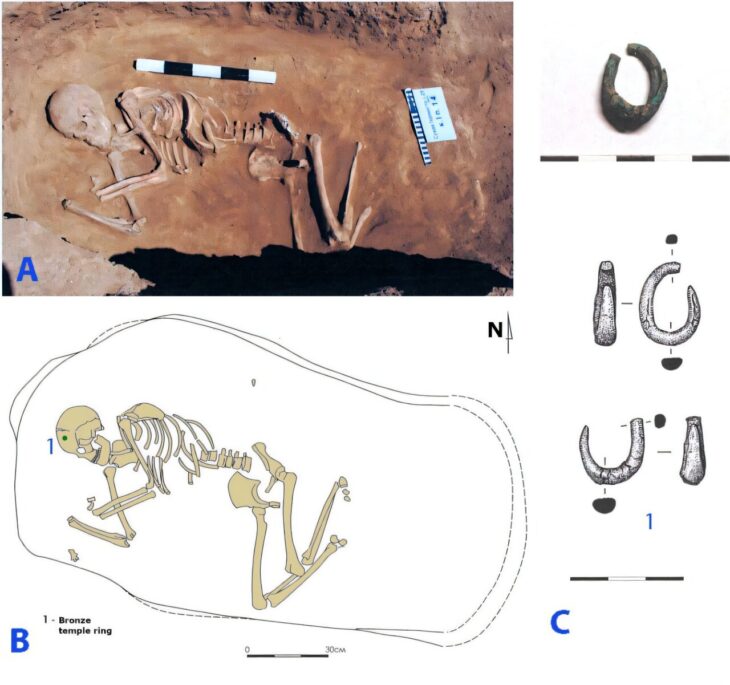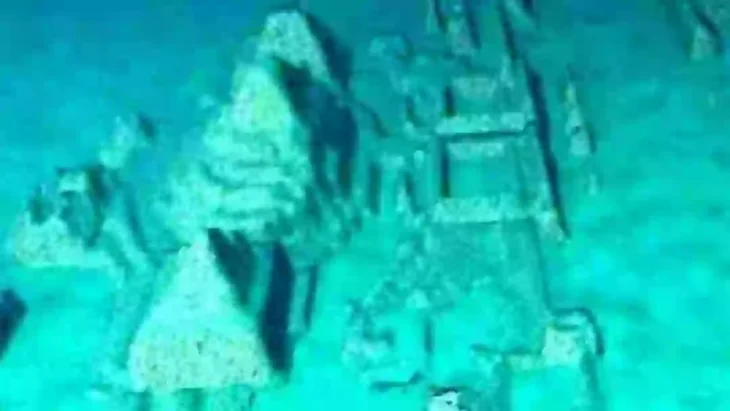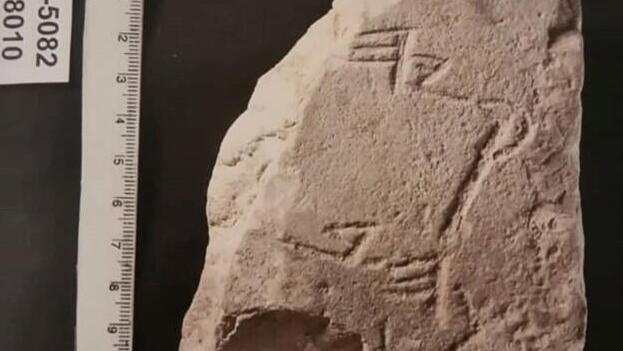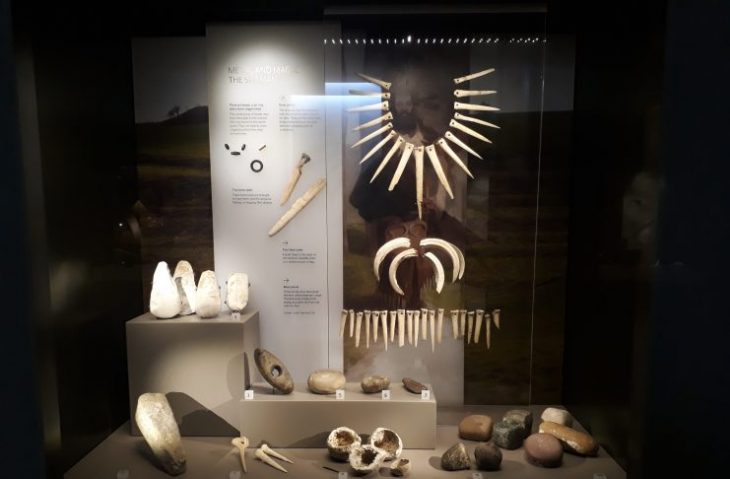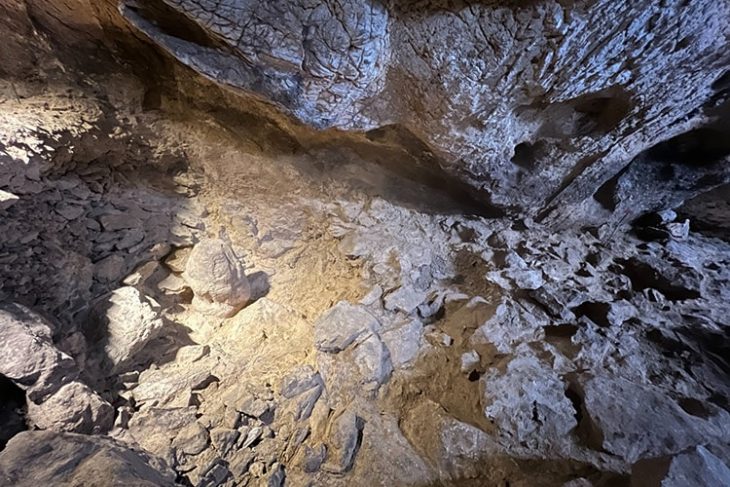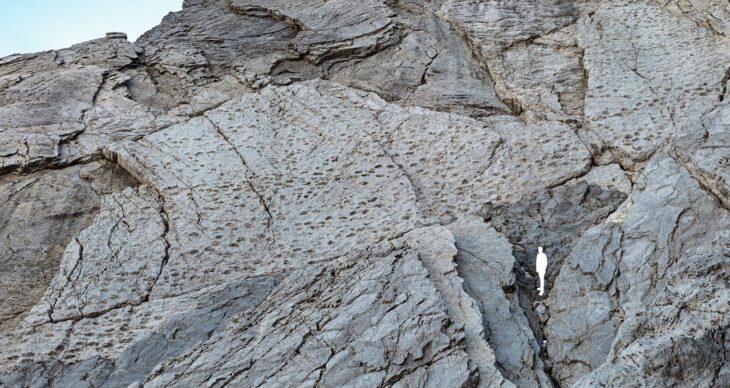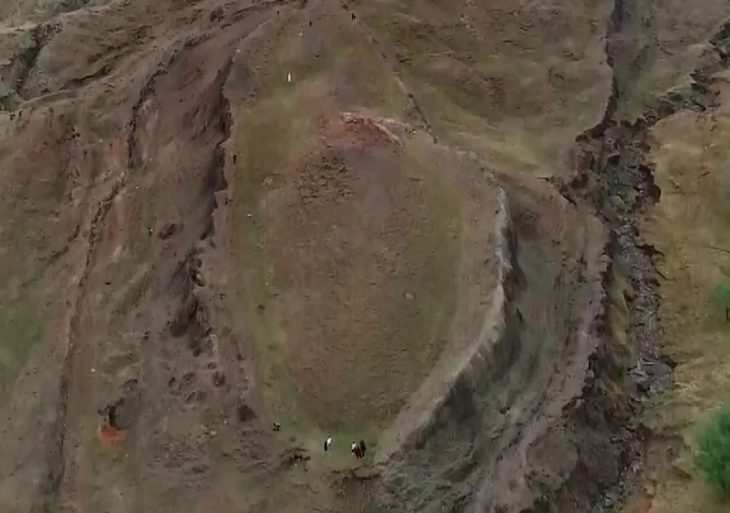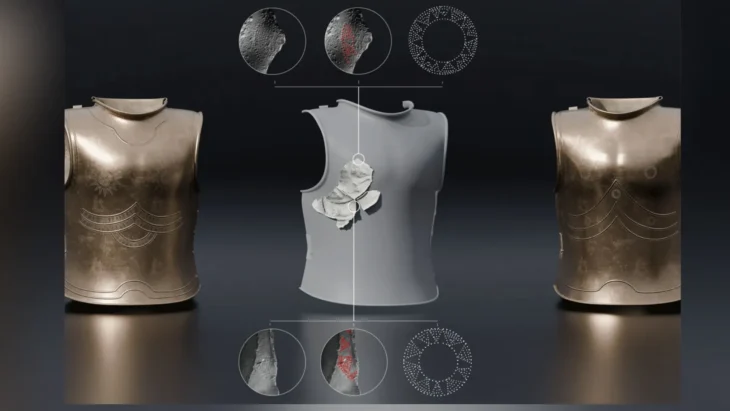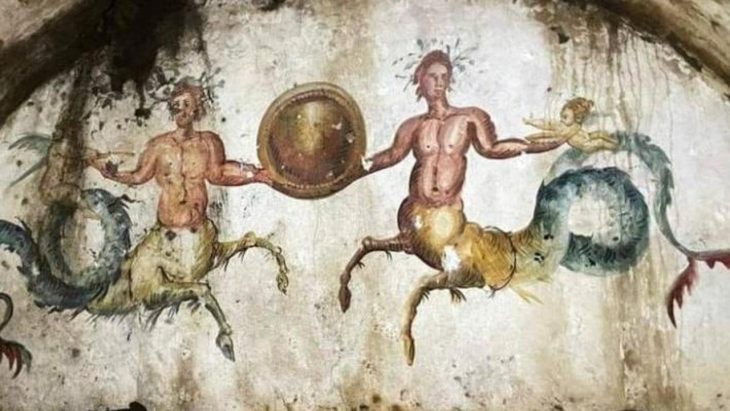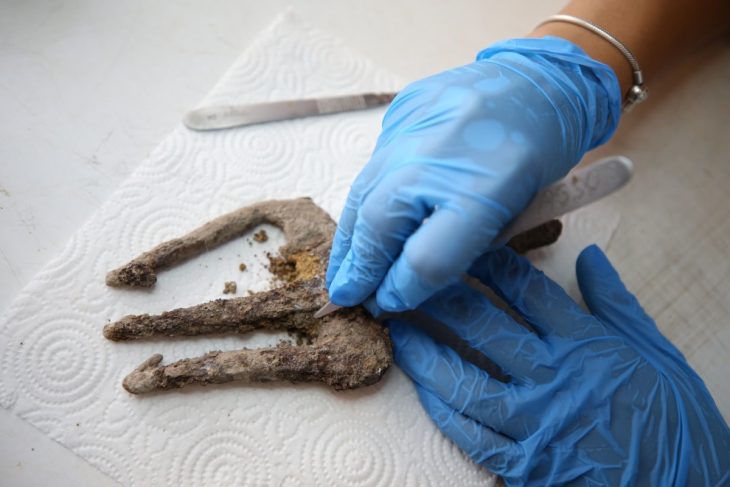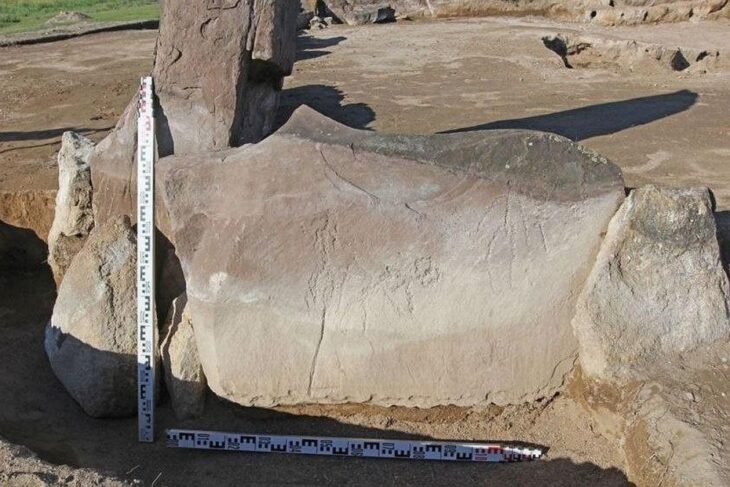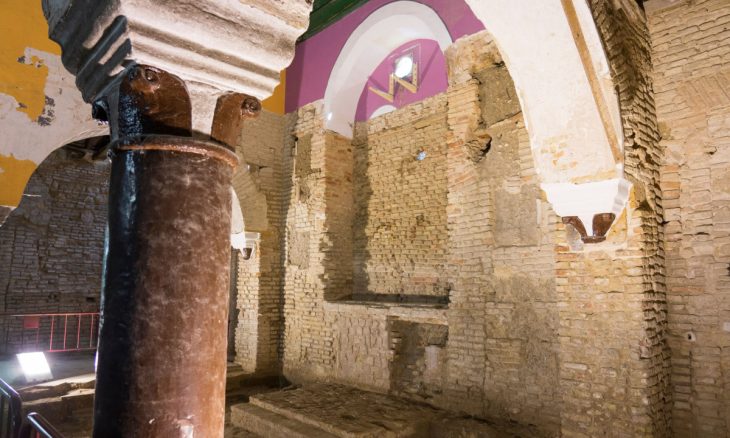During the excavation of an eighteenth-century hospital in north-western France by researchers from the Orléans Archaeological Service, a 2,000-year-old necropolis contained more than 60 graves and 21 ‘curse tablets’, including one written in the extinct Celtic language of Gaulish.
In 2022, researchers excavations underneath an 18th-century hospital in the town of Orléans, about 75 miles (120 kilometers) southwest of Paris, uncovered a Roman necropolis containing more than 60 graves. Burials, all containing the remains of men, had been placed in a row situated along a wall. Some of the burials included “curse tablets,” which were used to call for divine vengeance or request wishes from the gods.
The tablets are thin pieces of rolled lead inscribed with messages for the gods, then pierced with a nail and placed in a grave or a well. Using reflectance transformation imaging, one of the cemetery tablets—which was discovered between the legs of a man who had also been interred with a vase and multiple coins—has been virtually unrolled. Its Latin inscription was accompanied by several words written in Gaulish, a Celtic language.
Now, scientists have deciphered this message inscribed on one of the tablets, which was written in an extinct language called Gaulish. It invoked Mars, the Roman god of war, and asked the deity to curse a series of individuals. Several people were also named in the inscription as targets of the curse.
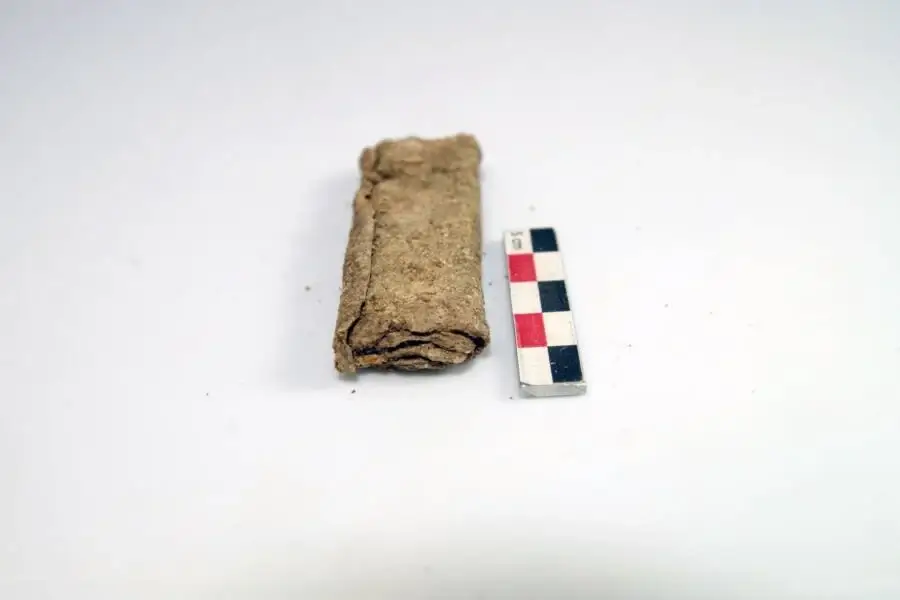
Linguistics experts have now translated it, and, according to the Service Archéologie Orléans, they believe it reads:
📣 Our WhatsApp channel is now LIVE! Stay up-to-date with the latest news and updates, just click here to follow us on WhatsApp and never miss a thing!!
To Mars the Royal, who pierces names
It is the bewitchment of these men and women below (named)
who accomplished the unfortunate and unjust feat
and also all those who were accomplices of these men and women.
The tablet then lists a series of names.
X-ray tomography is now being used to examine and virtually unroll a second curse tablet from the cemetery. Researchers hope to learn important historical details about ancient religion, Gallic culture, and the Roman conquest of Gaul as they continue to translate the remaining 20 tablets.
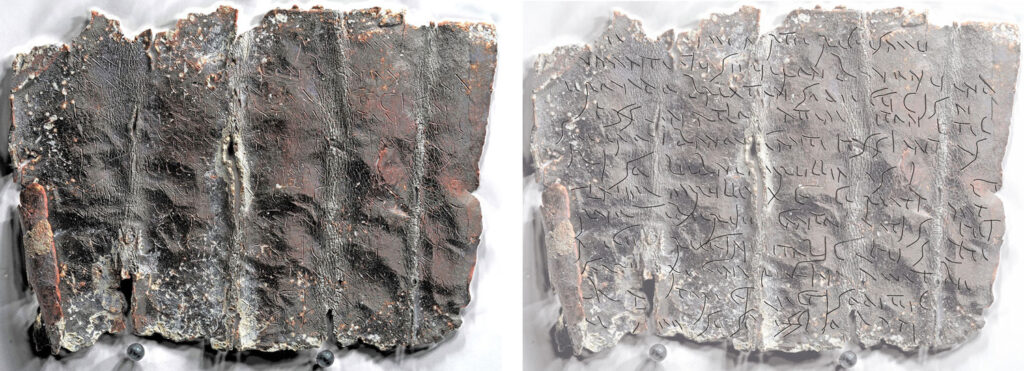
While research on the remains, tablets, and other artifacts found at the site will continue for years to come, the necropolis’ excavations are anticipated to conclude at the end of this month.
Cover Image Credit: An unrolled curse tablet written in the extinct Gaulish language. Credit: Service Archéologie Orléans (SAVO)

